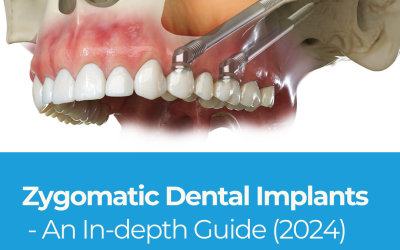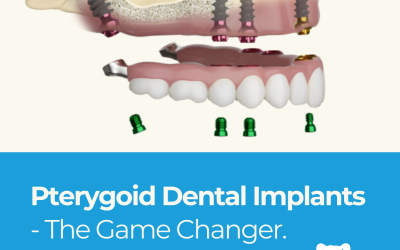Wisdom Teeth Removal During NS (National Service) in Singapore
Still serving your National Service? Here’s what you need to know about getting your wisdom teeth surgery covered as part of the medical benefits available to you as an NSF.
Here’s an in-depth guide to wisdom teeth removal during national service in Singapore.
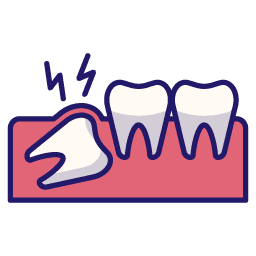
TL;DR
Wisdom Tooth Surgery is ‘Free’ for Full-time NSFs when done at a Public Healthcare Institute or in-camp.
As part of your NSF medical benefits; you can enjoy ‘free’ (covered by your NSF medical benefits) wisdom tooth surgery at any army camp with an in-camp dental centre. If your camp doesn’t have a dental centre, fret not, you can simply head over to your medical officer or nearest Polyclinic that has a dental centre for a consult and referral to a public hospital where the wisdom tooth surgery procedure will be done.
Do note this NSF benefit is only eligible at participating public institutions. Private institutions or private dental clinics (like us) are not part of this program. Make sure to have a referral before heading to the public hospitals, otherwise your surgery might not be covered.
Some other things to take note of:
- These benefits are only available for Full-time NSFs, which means the moment you ORD, you won’t be eligible for them anymore.
- The benefits do not extend to private institutions or private dental clinics (like us).
- The time from your initial consult at the polyclinic to your actual wisdom tooth surgery may take up to 3 months.
- You’ll typically get anywhere from 5 days – 8 days worth of MCs to recover after your surgery.
- Only surgical extractions are covered which means if your wisdom teeth do not require surgical removal then the procedure won’t be covered (read more below).
- Plan your surgery in advance if you can; and make sure to let your supervisors know too.
- If you missed out on using your NSF benefit for wisdom tooth surgery – then you can contact us to book an appointment to have your wisdom tooth removed instead. (Cost of Wisdom tooth surgery can ranges from $950 – $1250 and can typically be Medisave claimed up to $1,250 per tooth.)

The NSFs Guide to Wisdom Tooth Surgery
If you’re a Full time National Servicemen serving your National Service in Singapore (Hometeam, Army, Navy or Airforce), then you might be considering taking up the opportunity of having your wisdom teeth removed. With the benefit of the government paying for your procedure as part of the medical benefits as an NSF, plus the time off to recover, it is a tempting offer.
There is of course more to consider. As you may know, leaving your wisdom teeth in place can lead to complications in later adulthood, including infections and gum disease.
Although having your wisdom teeth removed will cause you a few days pain and swelling, in the long run it works out best for most people. Especially when having this done in their early twenties. Having youth on your side aids healing, and if you are in service then the Singapore NSF medical benefits when it comes to wisdom tooth surgery makes this an easier choice.
Here’s what you need to know about procedure types, eligibility, recovery and time off.
When am I eligible for government funded wisdom teeth removal?
From the start of your National Service, until your Operation Ready Date, you are eligible for fully paid wisdom tooth extraction. There are some caveats to this, such as your need for surgical removal, which will be determined by X-rays and discussion with your Dental Officer.
It also depends upon you having your surgery done through one of the recognised channels. Most NSFs choose to have their wisdom teeth removed at either one of the larger Army Camps (e.g. Nee Soon Camp, Kranji Camp, SAFTI) since any dental procedure done in an in-camp dental centre is absolutely free, however, certain NSFs who may not have access to these camp can also choose to have their wisdom tooth surgery in one of the public institutions listed below.
Do note that the NSF dental scheme does not cover private dental practices or polyclinics.
These public institutions offer wisdom teeth removal as part of the medical benefits of being an NSF
- National Dental Centre
- Khoo Teck Puat Hospital
- National University Hospital
- Ng Teng Fong Hospital
- Changi General Hospital
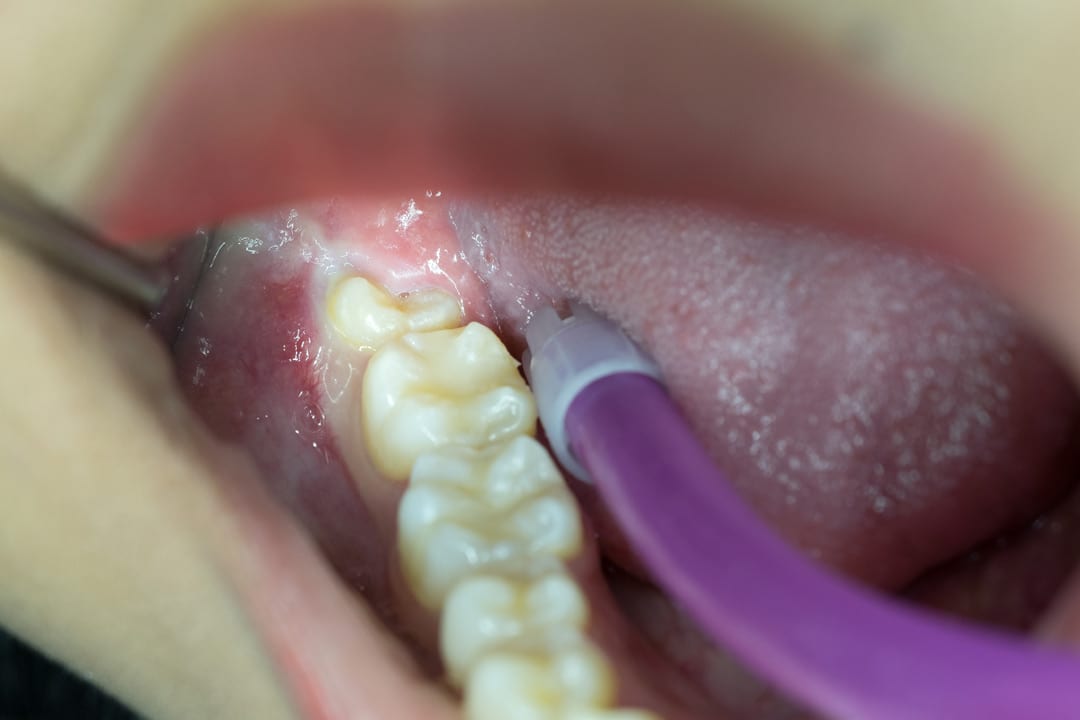
Only surgical removal is covered
There is a caveat that many people find confusing. So let’s break this down. The rule is that only dental surgery to remove wisdom teeth can be claimed through the payment scheme. So if all four of your wisdom teeth can be removed without surgery, a ‘simple’ removal, then this cannot be covered by the NSF scheme.
With that said, in most cases surgery is required. If your wisdom teeth are impacted, or not a simple removal for other reasons, then they require surgery.

Having some normal and some erupted wisdom teeth
It is fairly common to have normally erupting wisdom teeth in your upper jaw, and impacted wisdom teeth in your lower jaw. If this is the case for you too, then you may be pleased to learn that you could still manage to have all four removed under the scheme.
Just for clarity; if you wanted to remove the normally erupted teeth only, then that would require you to pay for it. If you wanted to only remove the impacted teeth, then that would be covered by the government scheme. But there is more…
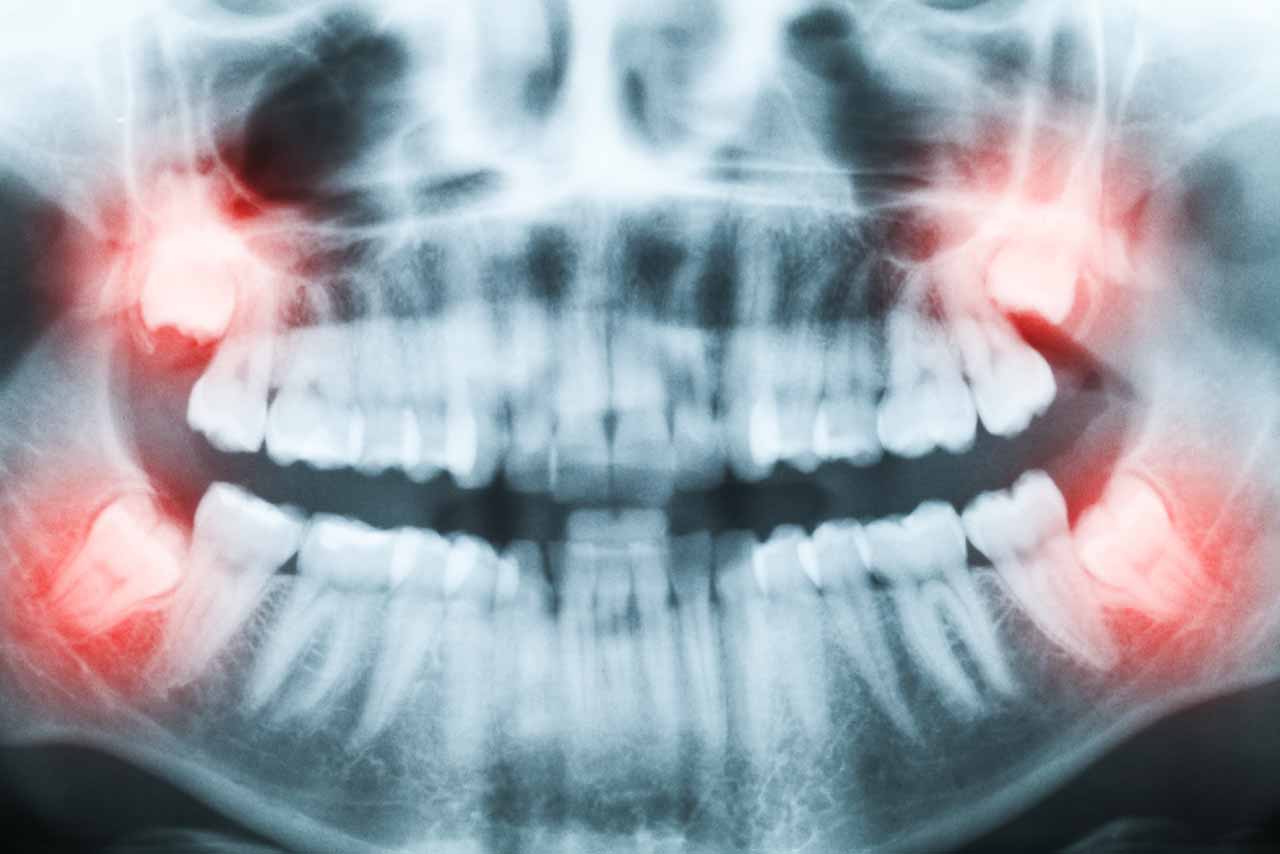
Getting all four wisdom teeth removed
It may be possible have all four wisdom teeth taken out, and still claim the full cost back from the scheme. As this means you are having a surgical procedure during your visit, the whole visit is claimable. This does apply even if your upper teeth require simple extractions and only your lower teeth require surgical extractions.
So this way you could make the best use of your medical benefits as an NSF, and prevent any future problems with your wisdom teeth by having all four removed.
Getting referred for wisdom tooth surgery

You need a referral letter to get your procedure done at a public hospital. Be careful not to book in without one, or you will be charged the full price as a private patient.
Going through your dental officer or medical officer.
Your camp medical officer can give you a referral letter, as can your camp dental officer. The most typical time for NSFs to have their FFI (Fit for Instruction) is in the last months before their ORD. During this time you will have a dental examination from your DO, and they will tell you if your wisdom teeth need to be removed or not.
Moreover, all procedures done in-camp by a dental officer are free.

Going through your local polyclinic
Alternatively, you can choose to visit your local polyclinic for a dental appointment, do note that this visit is purely a consultation to access your suitability for wisdom tooth surgery. After your visit to the polyclinic, you’ll be referred out to one of the local hospitals which perform wisdom tooth surgery.
Do note that the average waiting time from the date of your initial appointment at the polyclinic and the actual wisdom tooth surgery is about 3 months. Do factor this waiting time into your schedule and only active NSFs are eligible for the medical benefit.
Do note that the initial cost consultation at the polyclinic is not covered under the NSF dental scheme, any additional services done during your visit such as scaling and polishing or fillings are not covered either.
Procedure and anaesthesia options
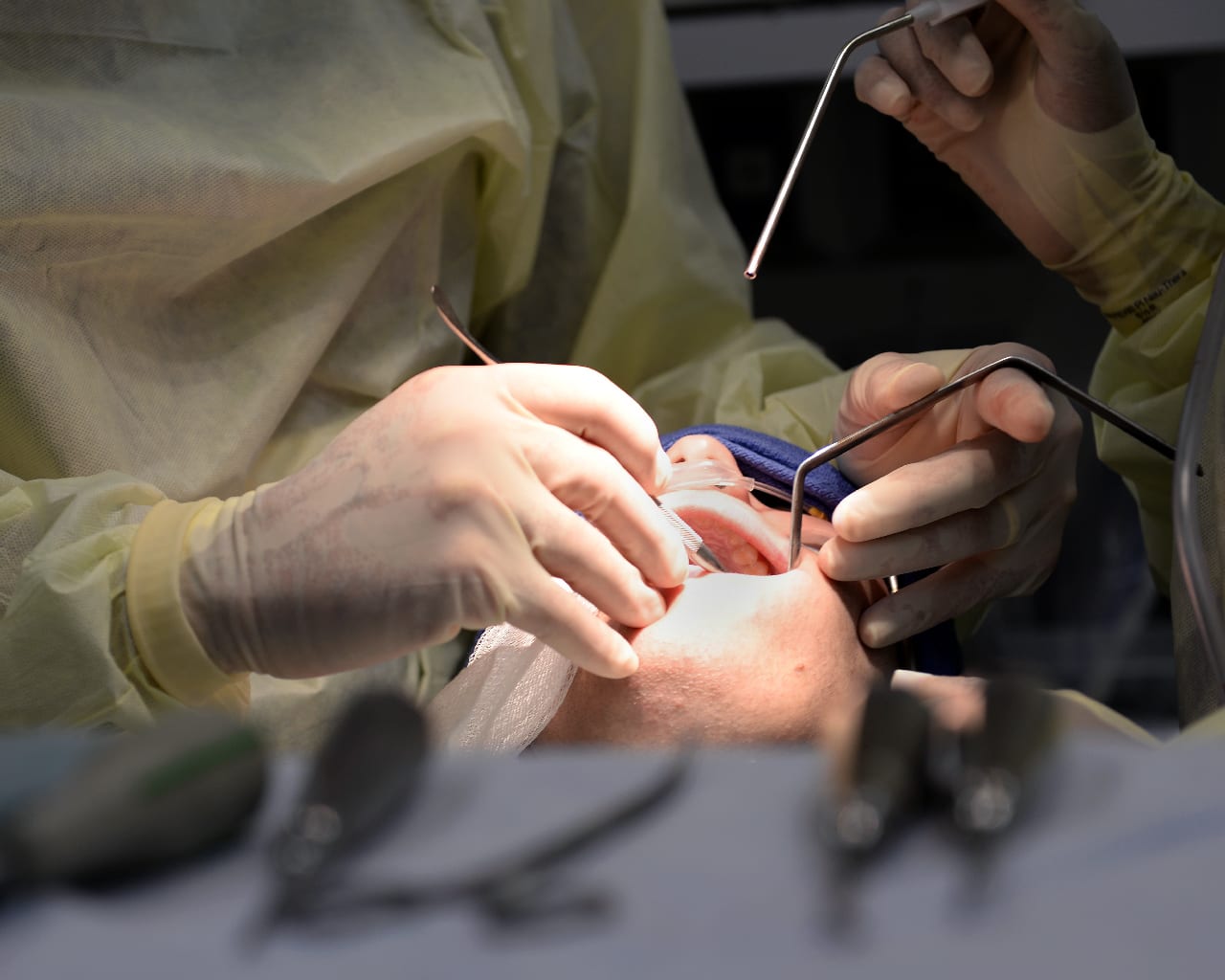
As you’ve discovered by now, there are two types of wisdom tooth extraction. You may need only a simple extraction, or you may need a surgical extraction. Quite possibly, you will need a combination of both if some of your wisdom teeth are impacted or very close to a nerve.
For simple extractions, you only need a local aesthetic injected at the removal site. But for a surgical extraction, you can discuss with your dentist the options of local or general aesthetic.
From the X-rays of your teeth, your dentist will be able to tell you which teeth need surgical removal. The surgical procedure typically involves the gums first being lifted away, and then possibly the tooth being cut and removed in sections. This depends on how widely the roots are spread out and how difficult the extraction is.
Pain, healing and recovery time

Immediately after your procedure you will bleed from the extraction site. You will be given gauze to bite down on, as the pressure helps the bleeding to stop naturally.In the next day or so after your procedure you may experience some further bleeding. But don’t worry, this is completely normal.
We recommend going to sleep with a towel on your pillow the night after your surgery, so it won’t matter if you dribble a little blood overnight.
Something we do not recommend is drinking with a straw. Although this might seem like a good idea, the suction it requires to pull liquid up the straw can actually make your extraction site start bleeding again. Instead, try to be very gentle with your mouth. Don’t gargle or spit too much. Your gum needs to let the blood clot, so try not to disturb that process.
You will have swelling and bruising for a few days. The usual things like ice packs for your jaw, and plenty of rest, are the best course of action. And you won’t be able to chew for a few days either. So before your procedure, make a meal plan that includes plenty of soups and smoothies to keep your stomach full. Good nutrition also helps with the healing process.
And finally, good hygiene is extra important after dental surgery. Do not try to brush your teeth or even rinse your mouth for the first 24 hours after your surgery. But from 24 hours onwards, be thorough in cleaning after eating, without aggravating the extraction site.
Brush and floss as well as you can manage, and use mouthwash to help prevent bacteria building up. If you usually smoke, this is the perfect time to switch to nicotine patches, as smoking will slow your healing.
Time off from service

How much time off you get can depend upon the procedure that you had. If you had a general aesthetic then you may be granted up to 8 days leave.
For surgical extraction under local aesthetic, you are typically granted around 5 days leave. And for a simple extraction with no surgery required, you may only be granted 1 day off.
But be aware that the guidelines vary across different army bases. It is both wise and good etiquette to speak to your superiors early to give them adequate notice for your requested surgery and time off.
What if I leave my wisdom teeth in place?

It is possible for healthy wisdom teeth to erupt normally and grow well, fitting into your jaw. But it is more common for the jaw to not grow large enough to accommodate wisdom teeth. So pain and complications can arise later in life.
Being at the back of your mouth makes wisdom teeth harder to keep very clean, and so they can contribute to gum disease, dental caries and bad breath.
Something you may not have heard of is wisdom teeth causing headaches and sinus congestion. But if your upper wisdom teeth roots compress your sinuses, then this can lead to many sinus issues and generalised pain in the area.
Overall, extraction is the best course of action for the majority of people.

Weighing it all up
As you can only take up this offer during your active service, do not wait until it’s close to your ORD before requesting a referral. Remember there can be a waiting time to factor in too.
In 2003, a Singapore study of 1000 dental patients in the 20 to 40 age bracket, showed that 70% of them had at least one wisdom tooth that was impacted. So that chances of you needing an extraction is considerable.
With age comes the increased chances of gum disease or other dental issues that would make extraction and healing more difficult. Additionally, other health complications that come with age can impact how you heal from dental surgery.
All things considered, if you are thinking about having your wisdom teeth removed, then earlier is better. And of course, the NSF dental scheme won’t be available to you past your ORD, so it pays to take this benefit while you can.
So, What’s Next?
If you’re looking to get your wisdom teeth removed, you should begin by talking to your dental officer or book an appointment at your nearest polyclinic that has a dental clinic. As mentioned, don’t leave it too close to your ORD as there may be a wait before you can have your procedure.
If however, you have left it too late to take advantage of the medical benefits available to all NSmen in Singapore , then we are here to help you after your national service. Please reach out to us if you would like to discuss your options.
You can contact us via our support hotline at 9007 1085 or email us at enquiry@nofrillsdental.com or message us directly to get in touch with our dentists.
Talk to Us Today!
Related Posts
Zygomatic Dental Implants: An In-depth Guide
Zygomatic dental implants represent a revolutionary advancement in the field of dental implant surgery, providing a viable solution for individuals with insufficient bone in the upper jaw.
Transform Your Smile: The Guide to Full Mouth Rehabilitation with Dental Implants (2024)
Discover the path to a renewed smile and enhanced oral health through full mouth rehabilitation with dental implants—a dependable and aesthetically appealing option for those troubled by tooth loss or dissatisfaction with dentures.
Pterygoid Dental Implants: An In-depth Guide
Dental implants have revolutionized the world of dentistry, offering solutions for patients with missing teeth. Tubero Pterygoid Dental Implants stand out due to their unique placement and advantages.

